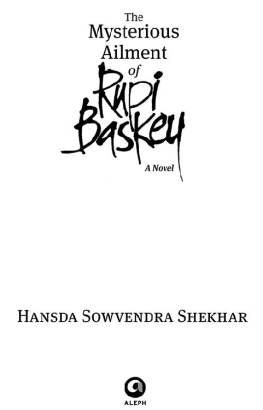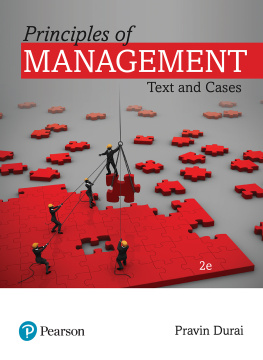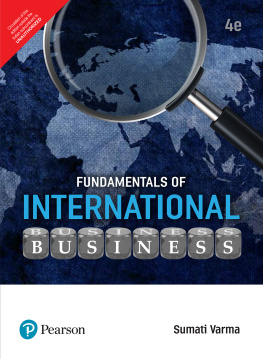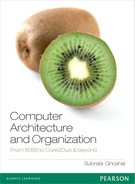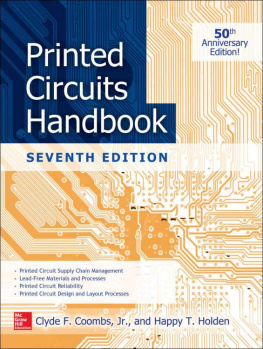The Adivasi Will Not Dance
Marang-Buru hirla, Jaher-Ayo hirla
Bonga-Buru ar Hapram-ko lagid,
ar Baba-Bo-Biti lagid
Contents
They Eat Meat!
Our aunt Panmuni-jhi began to eat regularly in restaurants after moving to Vadodara in 2000. In Bhubaneshwarwhere she had lived before Vadodara with her husband Biram and sons Hopon and Rabishe would avoid eating out, fearing infection and stomach upsets. On the days when the family returned late from their village outside Ghatshila to Bhubaneshwar, driving their Maruti Omni on the National Highways 33 and 5, Panmuni-jhi would be too tired to cook. They would then get their dinner packed from one of the roadside restaurants. But so paranoid was Panmuni-jhi about eating restaurant food that her tummy would begin to rumble a warning even before she had put a morsel into her mouth.
Biram-kumang would chide her, You cannot always find food cooked to your standards. Biram Soren was a director with the Gramin Vidyut Nigam, a Central government enterprise which provides electricity to villages. He had been with the company for over twenty years. His job involved regular travel, and he wasnt very particular about food.
Panmuni-jhi would say sharply, If I dont get food cooked to my satisfaction, I will not eat.
Biram-kumang couldnt argue with his wife. First, he hated useless arguments. Second, he knew of the high standards which Panmuni-jhi maintained in the kitchen. Apart from cooking the regular dal-bhat and roti-tarkari, Panmuni-jhi would experiment liberally, taking cues from cookery shows and magazines like Vanita and Meri Saheli . She experimented with eggs, milk, semolina and pumpkins; even tomato skins and potato peels. She made idli using only semolina; eggless cakes in a pressure cooker; tomato pickle with a tart, tangy flavour; and numerous items out of rice flour.
Rabi was fond of saying, If my mother is given cowdung, she can make pitha out of it.
Panmuni-jhi had also mastered several fancy items available in restaurants and roadside stalls: phuchka, masala dosa, chowmein, chilli chicken and the like. If she came to know that her sons had eaten chilli chicken somewhere, she would make the dish at home and ask them which one was better.
It was little wonder, then, that when Biram-kumang learnt of his transfer to Vadodara at the end of 1999, one of Panmuni-jhis immediate concerns was food.
What are we going to eat there? she wondered aloud.
They dont eat jill-haku in Gujarat, do they?
Family and friends in Ghatshila were concerned, too. They asked: Where will you live? What will you eat? Will you be able to manage in such a faraway place?
Such questions made Biram-kumang and Panmuni-jhi even more nervous. Biram-kumang had not expected to be transferred, not at his age. With ten more years of service left before retirement, this move would disrupt their lives. They would be, quite literally, moving from one end of the country to the other.
Panmuni-jhi though, practical as ever, started contacting her acquaintances in Gujarat. Jhapan-di, a cousin of ours, lived in Vadodara. Her husband worked with the Central Industrial Security Force.
Hello, Jhapan. Yes, mai, your kumang has been transferred to Gujarat.
Oh! Will you be in Vadodara, jhi?
Yes. How is the place?
The place is good, jhi. Its neat and clean and well arranged. Once you get used to this place youll like it.
That well have to, Jhapan. I am more worried about where to stay and what to eat. You see, Jhapan?
I understand, jhi. And that might be a problem.
A problem?
Yes, jhi. You see, the food habits here are very different. You may have to stop eating quite a few things we take for granted.
Like what, Jhapan?
Er for one, people dont eat meat here. No fish, no chicken, no mutton. Not even eggs.
Oh!
Dont worry, jhi. There are people who eat meat. And while they do sell meat and eggs in some places, those things are not easily available. People here dont like to mix with those who eat meat and eggs. Its like that.
Oh! What to do then, Jhapan?
Dont worry, jhi. If you feel like eating eggs or chicken you can come to our place. Inside the CISF campus everything is freely available. No problem with that.
By the end of 2000, the Sorens were in Vadodara. While Rabi, who was in medical college, stayed back in Cuttack, Hopon, who was in Class 9, accompanied his parents and was admitted to the ONGC Kendriya Vidyalaya, about an hours drive from their new flat, on the ground floor of a house in Subhanpura Colony. It was a two-storeyed house of reasonable size, owned by the Raos, an elderly couple. There was a hall-cum-dining space, two bedrooms, two bathrooms, and a kitchen. There was a verandah in the front; a smaller verandah at the back; some space in the front which was patio, flowerbed and car park all in one; and there was a little kitchen garden at the back. A staircase on the side of the house led up to the first floor and to the terrace. There was only one garage, where the Raos kept their old Maruti 800, but a shed had been built just beside the front gate to house an additional car. The entrance to the compound was common, through the front gate.
The Raos were a Telugu couple from Andhra Pradesh. Mr Rao had been an employee of a Central government unit, just like Biram-kumang was. He had been posted all over India before Vadodara, where he retired after building a house in the Subhanpura Colony. The Raos had two sons. The elder worked and lived in Germany, while the younger was a student of engineering in some other state.
Biram-kumang would never forget his first meeting with Mr Rao after they had moved in. Mr Soren, Mr Rao said to Biram-kumang after they had made some small talk over tea and biscuits. I hope you dont mind my asking this. Could you please tell me a bit more about yourselves? Where are you from?
Yes, sure. As I said earlier, we are from Jharkhand, Biram-kumang said.
You see, I have been to Jharkhand, Mr Rao said, surprising Biram-kumang with the slight hesitation he began with. To Ranchi and Palamu It was a long time ago; it was all Bihar then. Jharkhand became a separate state only a few days ago.
Yes, in November, Biram-kumang said.
Er Mr Soren, I hope you wont mind my asking this Will you?
No, sir. Not at all, Biram-kumang said tensely. Please, ask.
Er Isnt Soren a tribal surname? Please, I just want to know. For informations sake.
Biram-kumang was shocked at being asked this so directly, especially by the gentle-seeming Mr Rao, but he kept his composure.
Yes, sir, Biram-kumang answered. We are tribals.Santhal.
Please, I hope you dont mind, Mr Soren, I have nothing against tribals. I have worked with tribals in my various postings all over the country. I have even lived in Ranchi. I respect all communities. And in this city, you see, even we are outsiders.
I I understand that, sir, Biram-kumang said, unsure what Mr Rao was getting at.
You see, Mr Soren, I asked this because not everyone here might have the same attitude as me.
Biram-kumang was all ears.
Vadodara is a strongly Hindu city, Mr Rao continued. People here believe in purity. I am not too sure what this purity is, but all I know is that people here dont eat non-veg. You know? Meat, fish, chicken, eggs. Nor do they approve of people who eat non-veg.
Yes, sir. Biram-kumang nodded.
Tribals, even lower-caste Hindus, they are seen as impure. I hope you understand. Mr Rao seemed almost contrite as he said this.
Yes, sir. I have some idea of this, Biram-kumang said.
Muslims and Christians, they dont stand a chance here. They have separate areas where they live. Cities within a city. Separate bastis for Muslims, for Christians.


